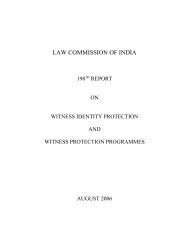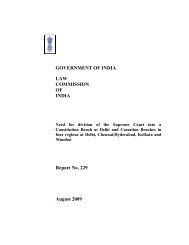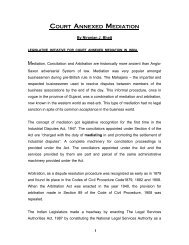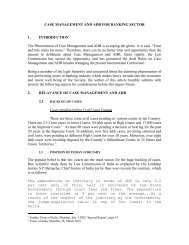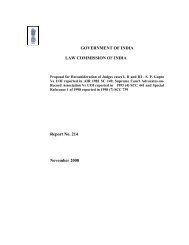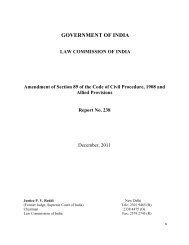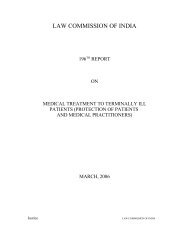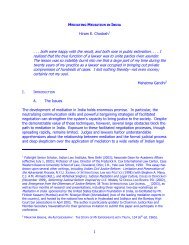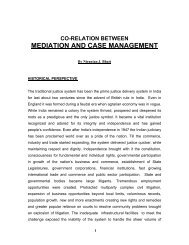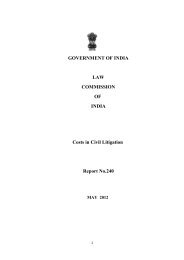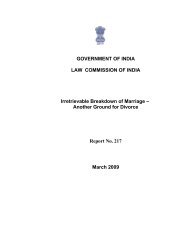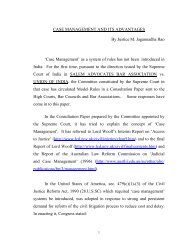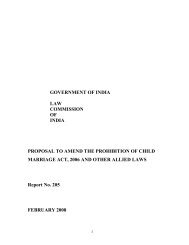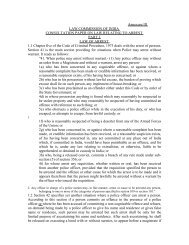The Legal Education - Law Commission of India
The Legal Education - Law Commission of India
The Legal Education - Law Commission of India
You also want an ePaper? Increase the reach of your titles
YUMPU automatically turns print PDFs into web optimized ePapers that Google loves.
70Massachusetts <strong>Law</strong> School (MSL) has accomplished this…. <strong>The</strong>keys have been a heavy reliance on practitioners and judges to teach,a small full time faculty that not only teaches but mentors apermanent group <strong>of</strong> adjuncts, a shared commitment to teaching….”and at p. 232:“With the exception <strong>of</strong> faculty members who founded MSL some tenyears ago, all but one <strong>of</strong> the full time faculty were recruited from theranks <strong>of</strong> the schools’ adjuncts. At present nearly half <strong>of</strong> all coursehours each year are taught by adjuncts drawn from the ranks <strong>of</strong>working lawyers and judges.”7.3 <strong>The</strong> reason why lawyers and judges are actively involved in so far asthe teaching <strong>of</strong> law schools is stated as follows:“<strong>The</strong> school’s view is that, although teaching involves a different(but not entirely distinct) set <strong>of</strong> skills from lawyering or adjudication,those with relevant experience are far better teachers on the wholethan those whose knowledge is largely academic.”7.4 <strong>The</strong> Massachusetts view is that ‘reliance on adjuncts provides depthand benefit to the curriculum at a relatively low cost. To hire full timefaculty with as much knowledge and experience (as lawyers and judges)would be very expensive. <strong>The</strong>y say that



